
Hong Kong needs a command centre fast to marshal all resources against Covid-19, or risk losing out to Singapore amid the expat exodus
- As increasing numbers of international businesspeople and talent escape Hong Kong for Singapore, more needs to be done to stop the exodus
- While the city may balk at mainland-style control measures, it could stand to learn from Beijing’s joint epidemic prevention-and-control mechanism
For decades, Hong Kong and Singapore have provided a fascinating tale of two dynamic cities competing to become Asia’s premier financial and business centre, offering low tax rates, a pro-business climate and global connections as well as close links with China.
For many cynics, though, there is a caveat when it comes to interpreting the success of the two cities: Singapore has thrived because of the government, while Hong Kong has done so despite it.
This observation may sound simplistic and harsh on Hong Kong but it is not far off the mark. One need only look at what has transpired in the two cities in recent decades, particularly since the coronavirus pandemic struck a little more than two years ago.
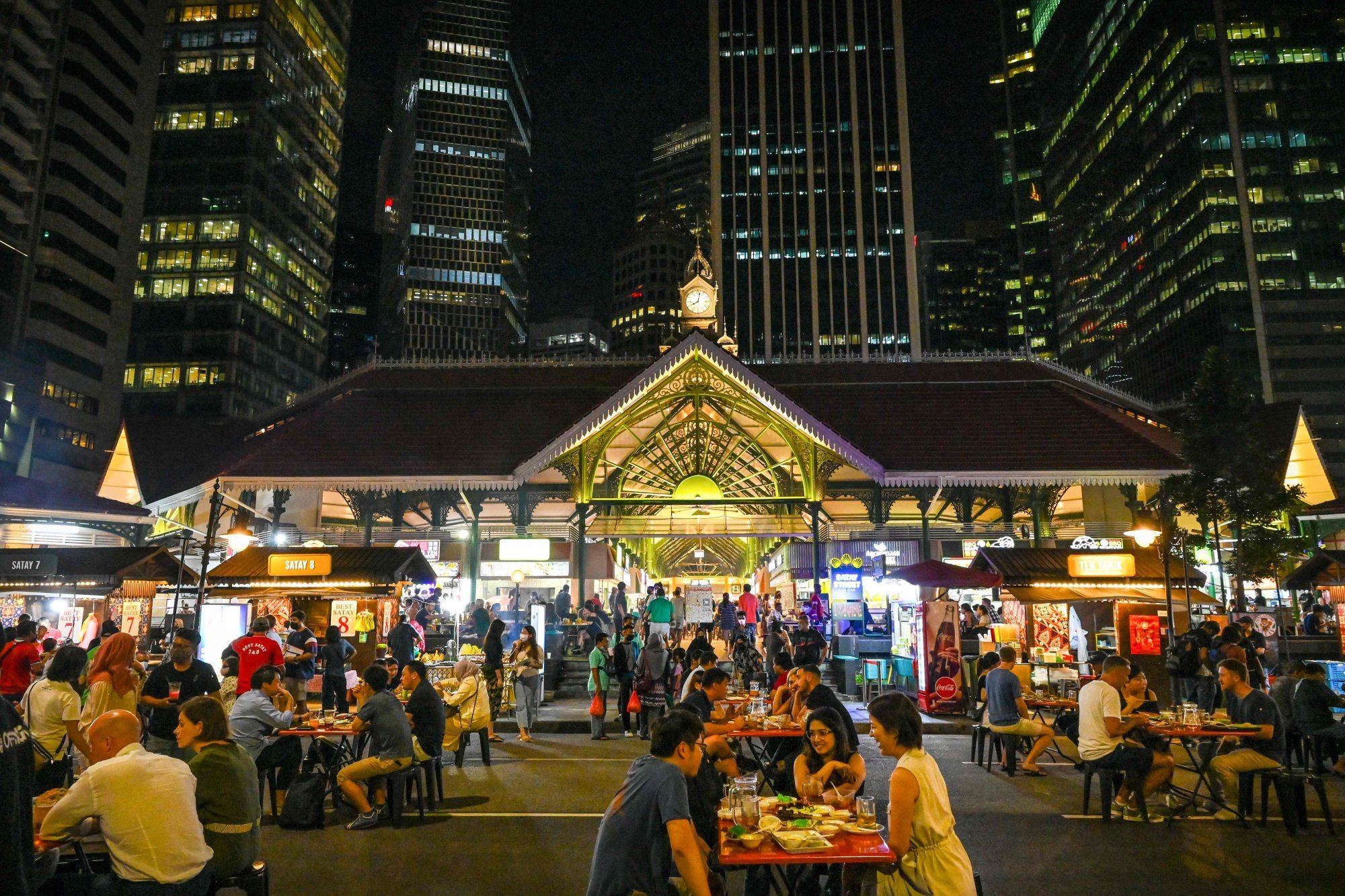
Singapore has pulled way ahead in seemingly almost every category while Hong Kong has largely wallowed in political mud since 2003 – with its reputation suffering a particularly big dent following mass protests and riots in 2019.
Now the city’s badly mishandled response to the latest wave of Covid-19 infections has further highlighted the incompetence of its bureaucracy, and may have become the final straw for many of the city’s affluent and international residents. They have begun to move their assets, portions of their businesses, and employees overseas, with Singapore being the most favoured destination. Many more are reportedly considering similar moves.
Some people may argue that Hong Kong has a handicap that Singapore does not – the former is ultimately answerable to the mandarins in Beijing, making it difficult for the city to set a clear direction or act promptly or decisively.
Hong Kong vs Singapore: a look at the Covid-19 numbers that truly matter
This argument may sound convincing on the surface but the reality is that it is mainly the ineptitude of the city’s government that has landed Hong Kong in trouble and stalled the city’s development.
Take the bungled response to the latest outbreak of Covid-19 infections. Last month, President Xi Jinping may have dashed the hopes of certain leaders who wished to model the city after Singapore, which opted to live with the virus as an exit strategy and lead the region in opening up.
But Xi’s forceful instruction to Hong Kong to take “all necessary measures” and make it an “overarching priority” to stabilise and control an Omicron-fuelled outbreak came only after the city was brought to its knees with surging daily infection cases which soon ran into the tens of thousands as hospitals were overwhelmed.
Where to go for those fleeing Hong Kong until better times return?
Right from the beginning, Hong Kong’s response to the latest wave, which first started in late December, has been far from satisfactory.
As many analysts have pointed out, the city is facing a disaster which could have been prevented because until the latest outbreak, it did a reasonably good job in keeping infections low in densely populated living quarters over the past nearly two years.
This should have given Hong Kong more than enough time to better prepare. But complacency seemed to have got the better of the city’s officials as they vacillated between the policy of living with Covid and the policy of dynamic zero-Covid. They have always seemed to be one or two steps behind the curve.
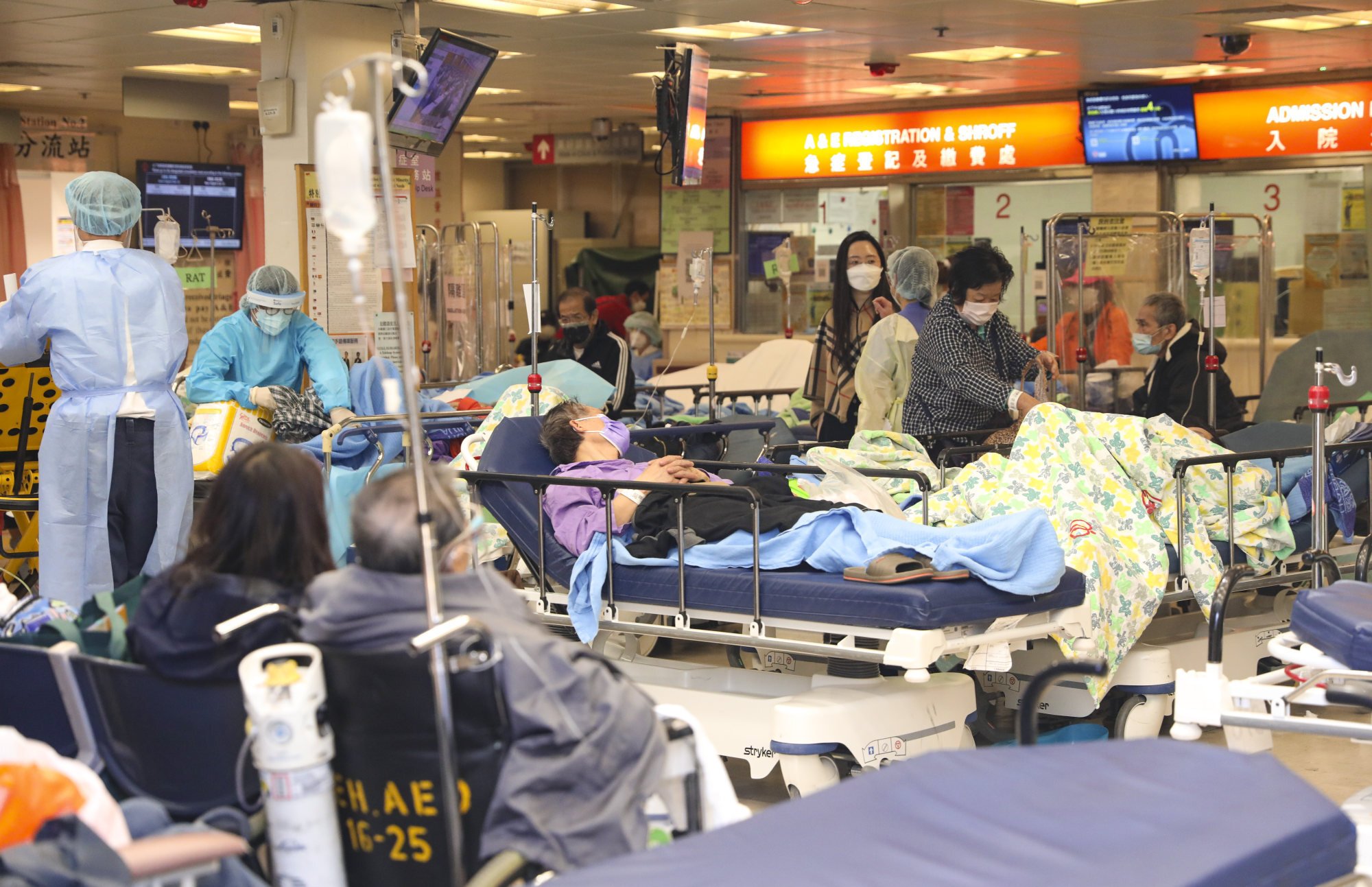
In Singapore, which has proactively pushed for vaccination among its elderly, one of the most vulnerable groups, more than 90 per cent of those aged 70 or older have been fully vaccinated. This is far higher than in Hong Kong, where most of the deaths in the latest wave occurred in the under-vaccinated elderly population.
Moreover, the Hong Kong government’s lack of clarity and confusing messages with regard to its virus-control strategy have contributed to more chaos and even several days of panic buying around the beginning of this month, with the city’s chief executive Carrie Lam and some of her officials giving conflicting accounts of the government’s thinking, particularly over whether a citywide lockdown was being contemplated.
The dissatisfaction was so widespread that Allan Zeman, an influential pro-government tycoon known for his mild manners, reportedly penned an angry letter to Lam to urge the government to get its act together and speak with one voice, as the city’s international reputation had been “very damaged”.
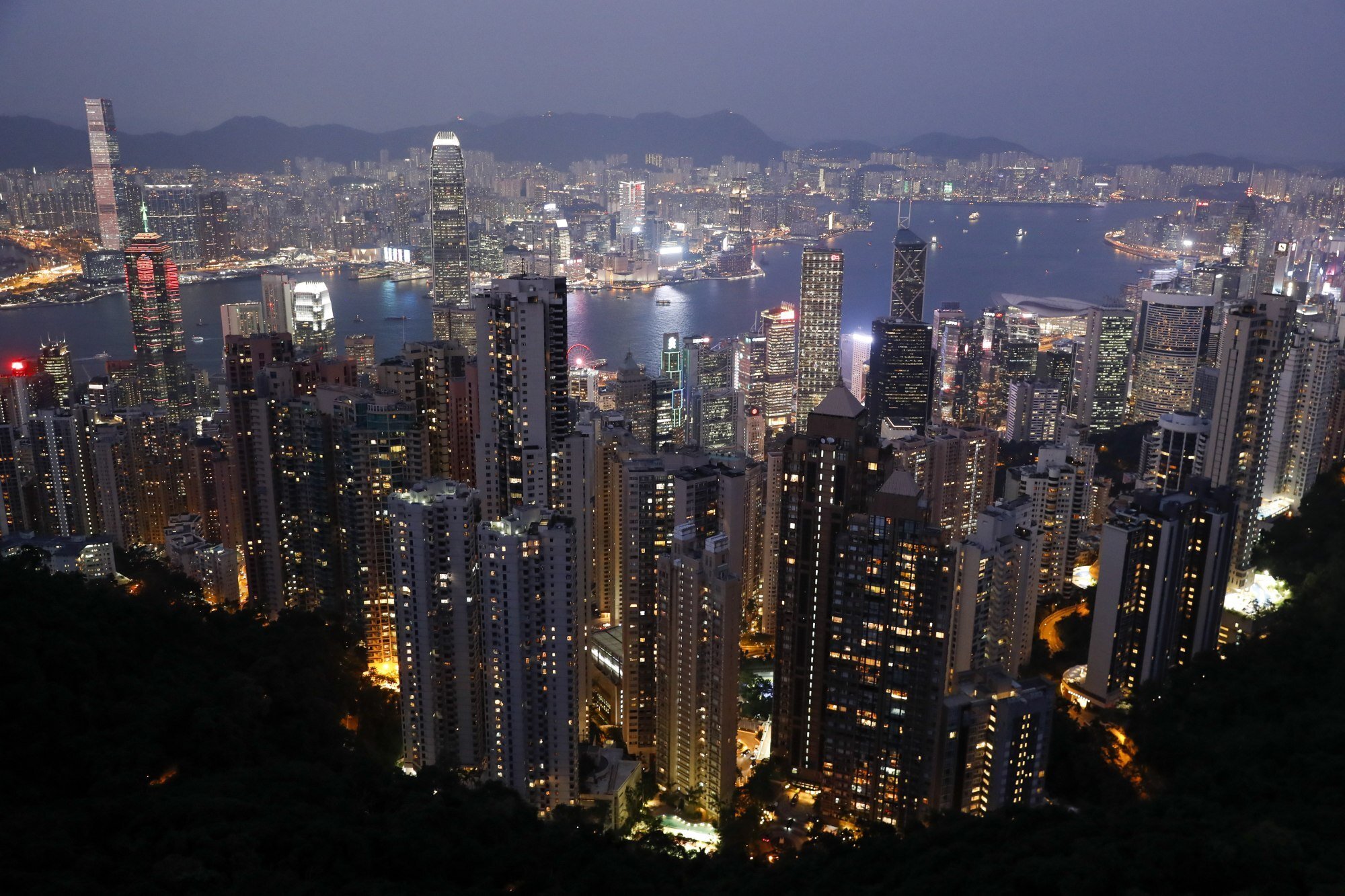
Some frustrated legislators and media commentators have even openly called for Beijing to take over Hong Kong’s virus-control efforts, which would have raised more questions about the “one country, two systems” concept.
Only on Wednesday did Lam announce that she would begin to give a daily press briefing to report on the government’s virus-control efforts and clarify rumours and speculation – something she should have done a long time ago.
Back in the first half of 2020 when the pandemic gripped New York state, its then Governor Andrew Cuomo gave a daily briefing for 111 consecutive days. He may have fallen into disgrace because of alleged sex scandals since then but his performance during that time inspired confidence and earned him widespread praise not only from the embattled residents of New York but also from people around the world.
After constant prodding from officials in Beijing and people in Hong Kong, along with advice from the mainland’s leading epidemiologists who just visited the city, Lam appeared to use Wednesday’s conference to show she is on top of the desperate situation.
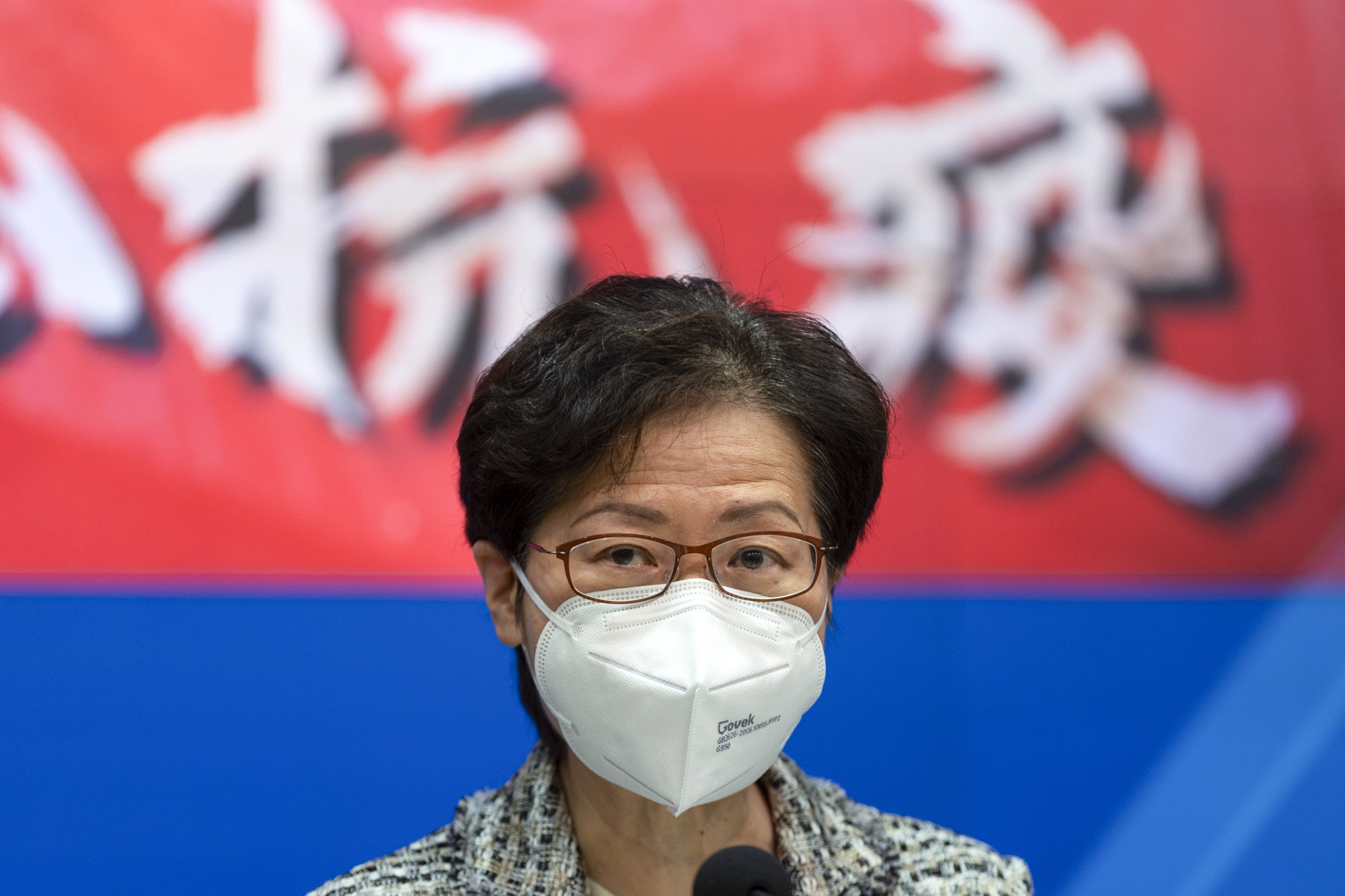
For instance, she seems to have accepted the advice of Liang Wannian, head of China’s expert team on Covid-19 prevention, that the city’s priority should be on marshalling resources to treat severe cases and the vulnerable elderly to reduce death rates and prevent more infections, instead of undertaking mandatory citywide mass-testing because the optimal timing for such a move has probably passed.
But that is not enough. While it is true that Hong Kong may find it difficult to learn from the mainland’s many harsh practices, there is one thing it could learn much from: Beijing’s joint epidemic prevention-and-control mechanism. This platform under the State Council, or cabinet, which comprises 32 departments and ministries covering the whole range of China’s antivirus efforts. Reporting to Vice-Premier Sun Chunlan, the platform serves as the command centre to marshal inter-department resources to focus on virus prevention and control, medical treatment, scientific research, publicity, international communication and logistics. It is responsible for briefings and crafting public messages.
Given what we have learned so far, Hong Kong sorely needs such a command centre to tackle what Lam called an “unprecedented challenge”, instead of the current situation in which different department heads can have different ideas for projects under their purview and different messages for the public.
As Hong Kong cases surge, a look at Asia’s lockdowns from Singapore to India
As Lam is the city’s top leader in charge of overall planning, perhaps she can delegate the day-to-day running of the command centre to John Lee, the chief secretary, who has already been tasked with coordinating with the relevant Chinese mainland departments whose support is crucial to Hong Kong’s antivirus efforts.
Reporting to Lam, Lee’s platform should be composed of principal officials of all the relevant departments and the city’s top epidemiologists, working together and crafting messages with one voice to remove uncertainties, reassure the public and restore confidence.
The key is that Hong Kong’s leaders should show they can lead and do what they are paid to do. They have vowed to be in “full-on war mode” in the fight against Covid-19 but the widespread perception is that some of them have failed to live up to their responsibilities and make the difficult decisions. While public hospitals have been overwhelmed, for instance, the city’s private hospitals have largely sat on the sidelines – the argument being that they are not equipped to accept Covid-19 patients.
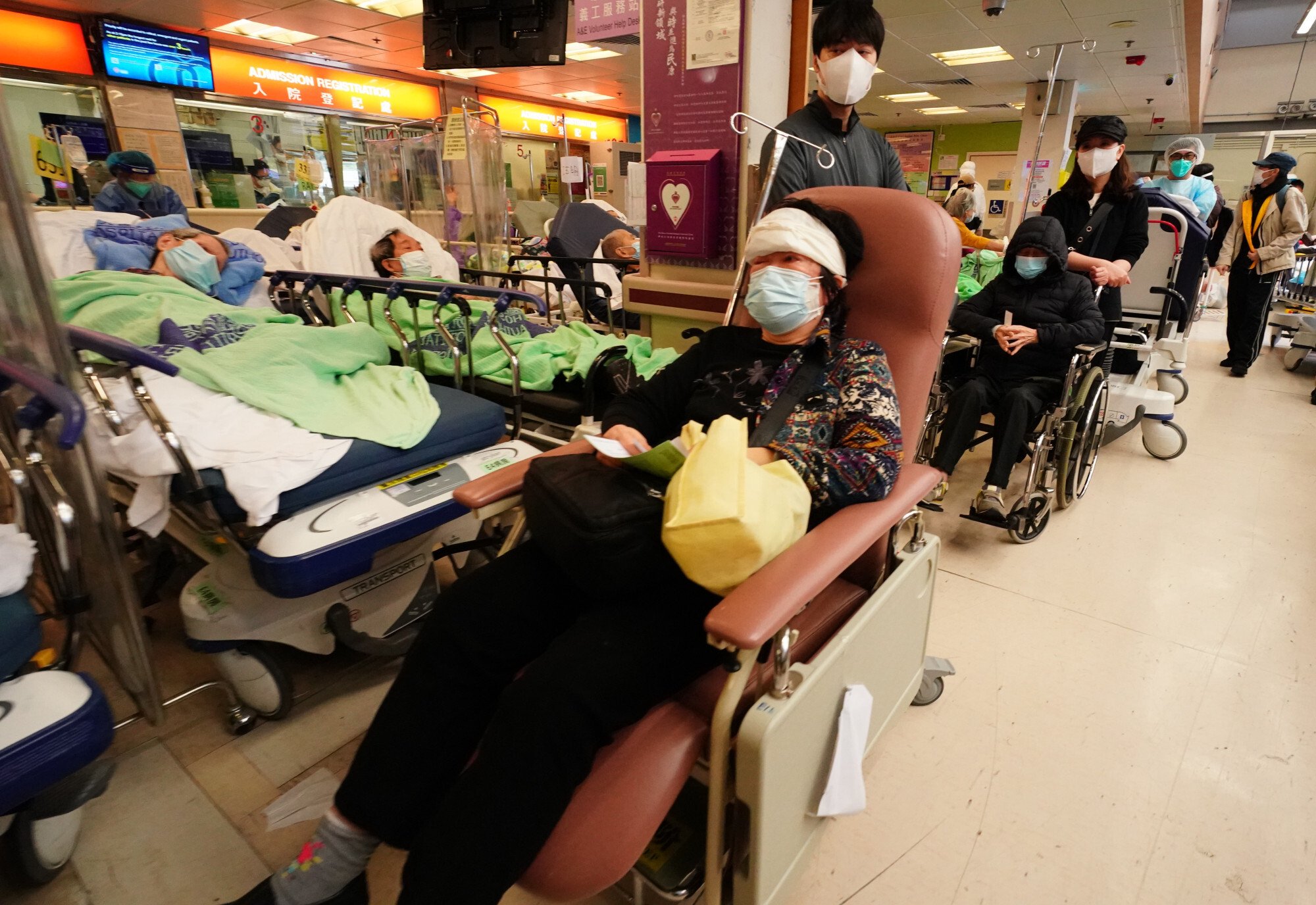
This should not be what a city in war mode looks like. Those hospitals can be quickly converted to handle Covid-19 cases, as is the practice around the world.
Moreover, a Covid-19 command centre should also include Hong Kong’s influential business and academic leaders, who cannot only offer counsel but also reach out to the various stakeholders who are essential in maintaining Hong Kong’s status as Asia’s premier financial centre, to offer reassurance and stem the exodus.
They could also help the government do a much better job of articulating the city’s coronavirus strategy to the outside world. There is a large pool of such people to choose from and several names come to mind: Allan Zeman; Charles Li, former chief executive of the Hong Kong stock exchange; Peter Wong of HSBC; Antony Leung, former financial secretary; and Ronnie Chan, chairman of Hang Lung Group.

